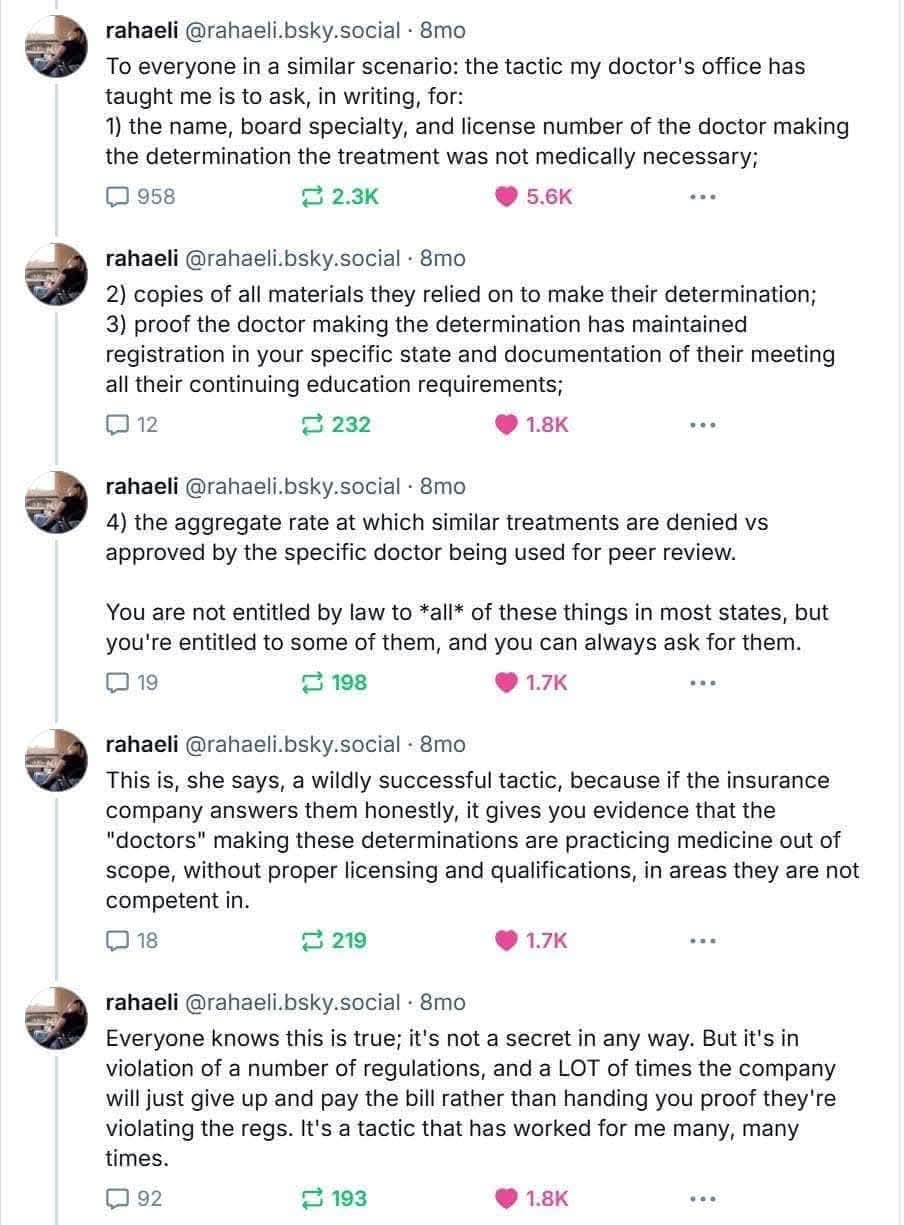this post was submitted on 08 Dec 2024
1585 points (98.6% liked)
Mildly Interesting
17584 readers
4 users here now
This is for strictly mildly interesting material. If it's too interesting, it doesn't belong. If it's not interesting, it doesn't belong.
This is obviously an objective criteria, so the mods are always right. Or maybe mildly right? Ahh.. what do we know?
Just post some stuff and don't spam.
founded 2 years ago
MODERATORS
you are viewing a single comment's thread
view the rest of the comments
view the rest of the comments

And your doctor will have to fight with the insurance company over the phone for an hour to do a pre-auth. When my doctor wants to perform something or give a certain treatment not covered, he assures me he will make this long and stressful call. I really wonder what they are discussing and what goes on in these conversations...
What doctor has time to do that? I'm in Canada and I can never trust my doctor to have any conversation with anyone, at any time longer than five minutes at a time for anything.
The best tactic I've found if you want to get anything done for yourself or someone close to you is for you to do the legwork and make calls, contacts and literally hound people to do their job. If no one is there to push things along, no one is going to magically appear to help you ... that is a fantasy that seldom and rarely happens, even in our publicly funded system.
You or someone who is capable should advocate for you every step of the way, otherwise you will just get lost and forgotten in the system ... whether you are in the US or Canada.
What you are saying is generally true. The only real oversight in ensuring things are moving forward is us ourselves as patients. It's our responsibility as patients to take charge of our health.
That being said, P2P is sadly a standard aspect of American medical practice. Essentially anyone in a direct patient contact position position has done them. In the clinic or hospital, it may be your primary clinician handling it but it doesn't necessarily have to be. It can be handled by other clinical staff or a group of nonclinical doctors also.
You dont have to worry about P2P since it will get taken care of (whether the service will be covered by insurance is another story). Instead I'd focus on keeping disconnected parts of the system abreast of your medical conditions and current list of medications. Because health information is protected there really isn't a great solution for centralizing this data yet so if you go to a clinic that's on a different EMR, they're not going to have all of the necessary information available to them.